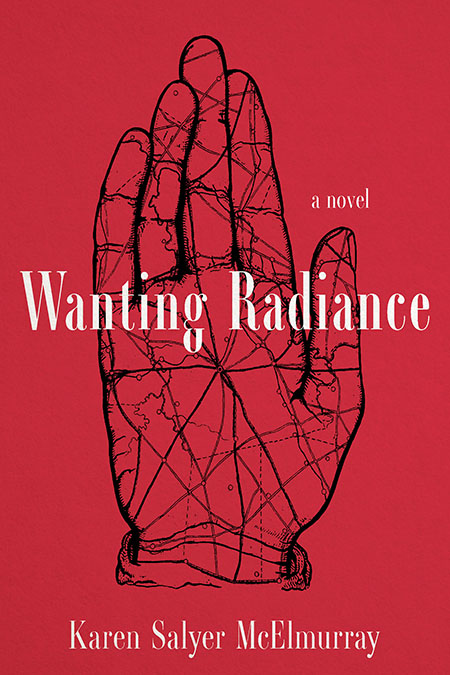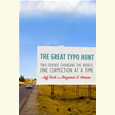Stories, Not Textbooks
In his latest poems, Bobby C. Rogers celebrates small-town America
The first poem of Social History by Memphis poet Bobby C. Rogers includes an epigraph from singer-songwriter Hank Williams: “you’ll curse the day.” These four words provide a sly hint that this book will be about regret as much as memory, and no genre does regret like country music. Yet Rogers chooses hope over despair every time, embodying an American spirit that can’t help but feel refreshing in these turbulent times. His brand of nostalgia does not argue that the past was somehow better; rather, he takes a close look at his own small-town upbringing to see what lessons might be learned, however hard-won. Or, as he explains in his poem “Junk,” “Memory is a close, sultry room where nothing keeps for long without beginning to turn. I will tell the truth as we’ve come to tell it.”
 One of those truths is that history can be rewritten, changed to suit our needs. In this collection’s title poem, the speaker remembers riding a tractor with blues legend Rube Lacey. That experience was orchestrated by the speaker’s father who had returned to his childhood home, hoping to make a new memory, a happier one, for his young son. The motivation for such an endeavor is clear when Rogers states, “If we have to, we’ll burn a swath across Georgia to be the one who writes the history.” This determination to be in control alludes to Sherman’s March to the Sea during the Civil War but also to the well-known adage that history is written by the victors. The ability to tell our own story is a privilege, one that many people never have.
One of those truths is that history can be rewritten, changed to suit our needs. In this collection’s title poem, the speaker remembers riding a tractor with blues legend Rube Lacey. That experience was orchestrated by the speaker’s father who had returned to his childhood home, hoping to make a new memory, a happier one, for his young son. The motivation for such an endeavor is clear when Rogers states, “If we have to, we’ll burn a swath across Georgia to be the one who writes the history.” This determination to be in control alludes to Sherman’s March to the Sea during the Civil War but also to the well-known adage that history is written by the victors. The ability to tell our own story is a privilege, one that many people never have.
I’ll admit that the small town Rogers evokes in Social History seems eerily familiar—I too grew up in rural Tennessee. There’s an openly Southern quality to these poems: They delight in storytelling and enjoy a deliberate, winding cadence not unlike the Cumberland River slipping its way through our state. It’s rare to find a poet working with such long, elegant lines, and the effect is immediate. Readers fall into the rhythm, hypnotized almost by its steadiness, nodding along at the poet’s insights.
But the reach is larger than Tennessee, just as people here are never entirely cocooned from the rest of the world. In “Americana,” a retired schoolteacher keeps her home like a shrine to the past, complete with Life magazines, a Philco radio, and various other bric-a-brac. But she’s no eccentric stock character; she’s a woman still mourning her fiancé, who died in France while serving in World War II. The moral seems to be that there’s no way to freeze time, that the real world always intrudes.
 Elsewhere in the collection, Rogers considers a related theme: history is personal, but it is also larger than we are. In “September,” after helping a stranger get his truck started, a teenager realizes, “You have little say // over what rises up, but no say at all if you fear to lay hands on the world.” Social History serves as a reminder of this admonishment to be active when others need us. Along with this advice, the speaker admits to times when he didn’t follow it, showing us that children can be cruel and friends neglectful.
Elsewhere in the collection, Rogers considers a related theme: history is personal, but it is also larger than we are. In “September,” after helping a stranger get his truck started, a teenager realizes, “You have little say // over what rises up, but no say at all if you fear to lay hands on the world.” Social History serves as a reminder of this admonishment to be active when others need us. Along with this advice, the speaker admits to times when he didn’t follow it, showing us that children can be cruel and friends neglectful.
In some ways, Social History feels like a portrait of the artist as a young man, a glimpse into the early experiences and obsessions that make Rogers a successful poet today. He is also the author of Paper Anniversary, a collection that won the prestigious Agnes Lynch Starrett Poetry Prize, and he teaches at Union University in Jackson. Although the setting of these poems is often the countryside, Memphis makes its way into the book, as well. There’s Elvis in his Graceland driveway and a children’s piano recital at the Beethoven Club.
Social History is an apt title for these thirty-eight poems. They examine the past through individuals—through stories—rather than textbooks. This is an openly American collection, populated by salesmen, coaches, schoolteachers, and veterans. The men and women in these pages could easily be described as salt-of-the-earth, folks who persevere. Nonetheless, Rogers is clear-eyed, aware of the cracks in the Norman Rockwell facade. Or, as he posits in “A Hundred and One Affordable House Plans,” “The better part of the American dream is the dream.” Hank Williams couldn’t have sung it better.

Erica Wright is the author of a new crime novel, The Granite Moth, as well as two poetry collections. Now a senior editor at Guernica, she grew up in Wartrace, Tennessee, and received her M.F.A. from Columbia University.


